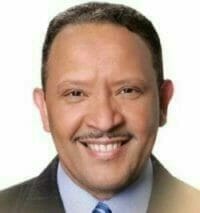“I recognize we are in political season. But the Urban League understands that your mission transcends politics. Good jobs, quality schools, affordable health care, affordable housing — these are all the pillars upon which communities are built. And yet, we’ve been reminded recently that all this matters little if these young people can’t walk the streets of their neighborhood safely; if we can’t send our kids to school without worrying they might get shot; if they can’t go to the movies without fear of violence lurking in the shadows.” — President Barack Obama, National Urban League Conference, July 25, 2012
As demonstrated by the recent acquittals of the Baltimore police officers accused in the death of Freddie Gray, and the wave of violence that has taken so many lives in recent weeks, the country continues to grapple with issues of racial hostility and violence.
The lack of social and economic opportunity is at the root of the unrest.
The troubling divisive rhetoric that has characterized the 2016 Presidential race has fed the unrest.
Only a historic, targeted mobilization of public-private partnerships can address the unrest.
“Save Our Cities: Education, Jobs & Justice,” the theme of the 2016 National Urban League Conference campaign represents an unprecedented mobilization to influence public policy through grassroots political action. Taking place August 3 through 6 at the Baltimore Convention Center, the nation’s largest civil rights and social justice conference attracts thousands of the nation’s most influential community leaders, together with top policy-makers, academicians, business leaders and artists for three days of dynamic dialogue, intellectual exchange and community service.
Workshops, panel discussions and policy sessions are built around the Urban League Movement’s agenda to address the challenges of unemployment, educational inequity, and social injustice.
Hillary Clinton and Donald Trump have been invited to address the Conference at the Presidential Plenary — a long-standing tradition of the Conference, acknowledging the indispensable relationship between the nation’s highest office and its leading civil rights and social justice community. The Plenary is a continuation of a process that began at last year’s Conference, when five candidates vying in the Republican and Democratic primaries addressed the Plenary. Questionnaires addressing issues of social and economic opportunity and inequality were distributed to all major-party candidates and all major-party candidates were invited to participate in a civil rights briefing from nine major civil rights organization. Hillary Clinton and Bernie Sanders each attended the briefings and participated in a substantive discussion of their civil rights and social justice agendas.
The Conference Workshops, Forums and Panel Discussions represent a “deeper dive” into the National Urban League’s mission areas of jobs, education, health, housing and civic engagement. For example:
- The Link between African American Cooperative Business and Economic Freedom: Can communities like Baltimore return to their former glory as thriving American Cities?
- State of Health and Wellness in Black America: The National Urban League’s Equality Index identifies a widening gap in health equity – how can communities address individual and institutional health factors to produce better outcomes?
- #Baltimore Rising: Making Change in the Aftermath: the death of Freddie Gray in police custody last year thrust Baltimore onto the national stage, making it a symbol of what happens when communities feel left out of the American Dream. How can millennials and young professionals create positive change and progress?
The State of the Urban League Address, scheduled for 7pm August 3 at New Shiloh Baptist Church, serves as my annual report on the progress and accomplishments of the Urban League Movement and serves as the official kick-off for the Conference.
Among the speakers, panelists and honorees who will join us in Baltimore are Congressman Elijah Cummings, Baltimore Mayor Stephanie Rawlings-Blake, White House Advisor Valerie B. Jarrett, Planned Parenthood President Cecile Richards, BET Chair and CEO Debra Lee, and US Education Secretary John B. King, Jr.
This year we’re excited to debut a new event, the family-focused Community Day on Saturday, expected to attract thousands of Baltimore-area residents for informative and entertaining exhibits and sessions.
Learn more at our Conference website and join us in Baltimore.
Marc H. Morial is President and CEO of the National Urban League. He was a Louisiana State Senator from 1992-1994, and served as mayor of New Orleans from 1994 to 2002. Morial is an Executive Committee member of the Leadership Conference on Civil Rights, the Black Leadership Forum and Leadership, and is a Board Member of both the Muhammad Ali Center and the New Jersey Performing Arts Center.



